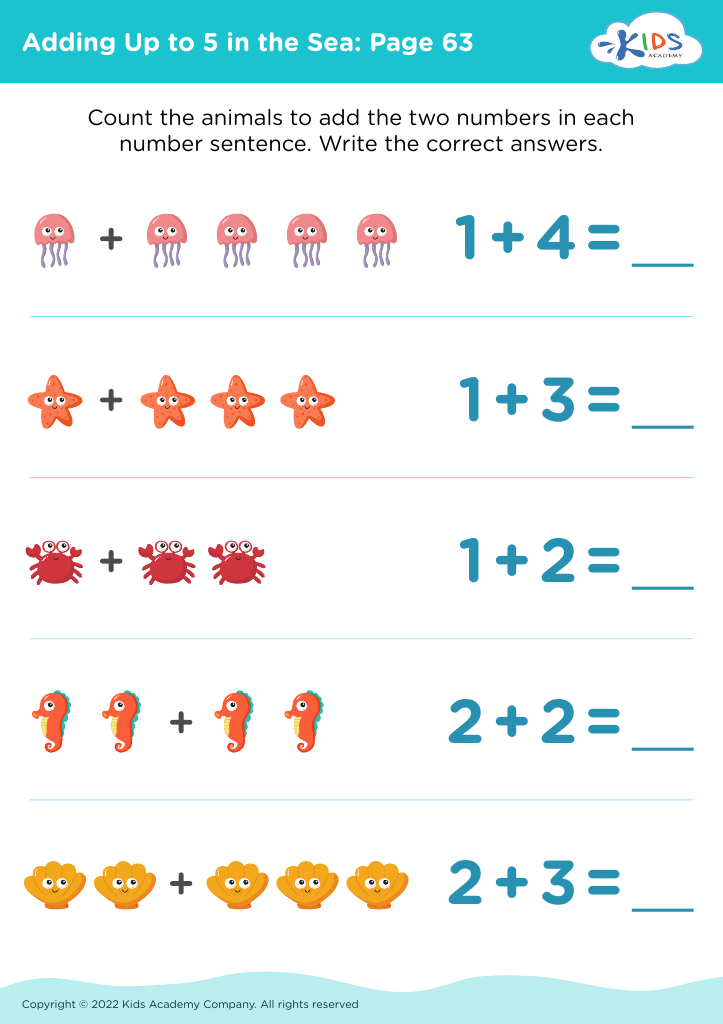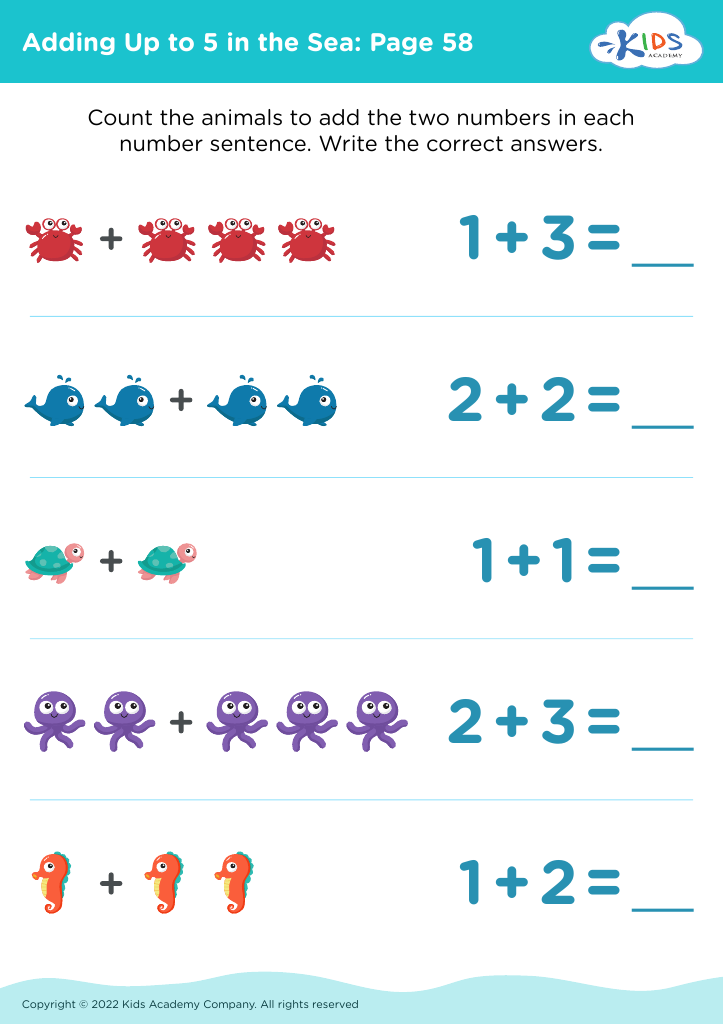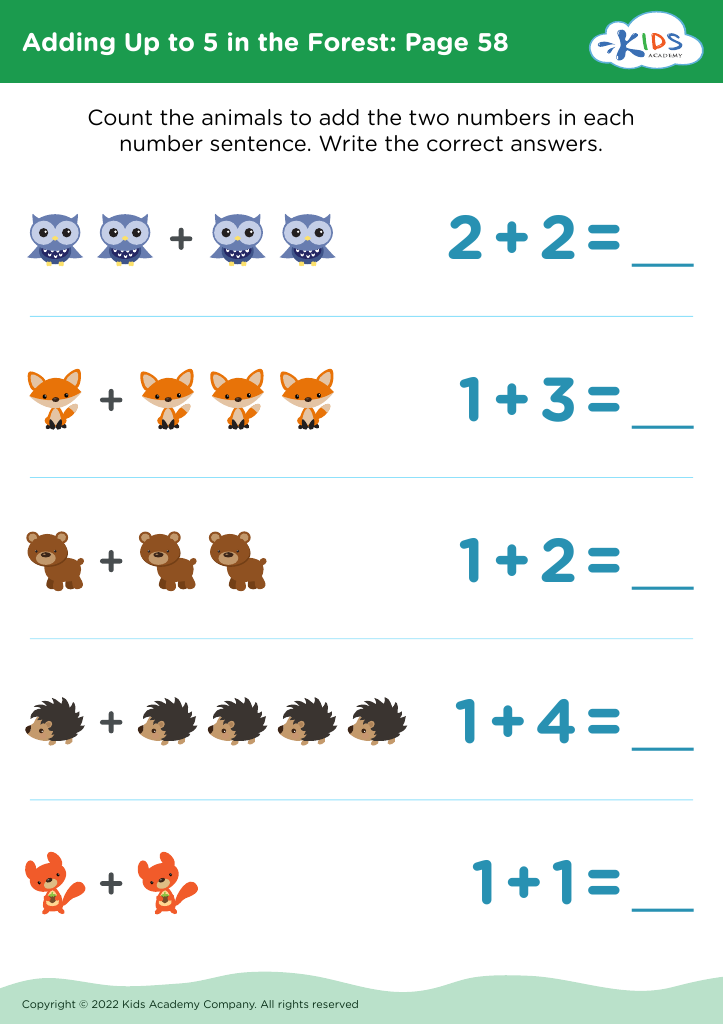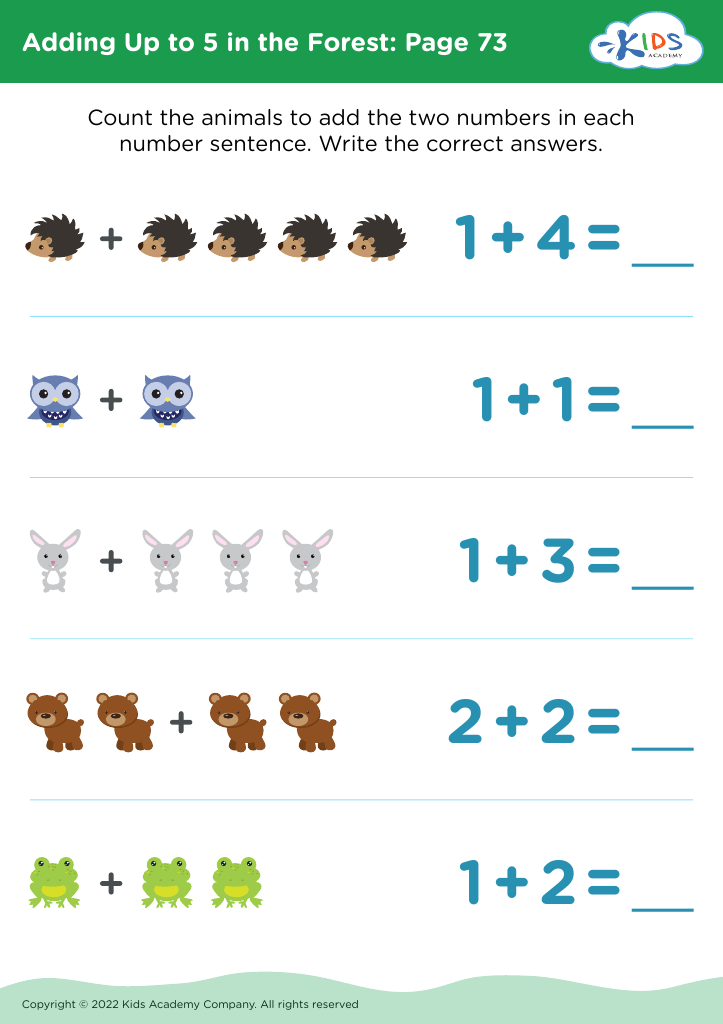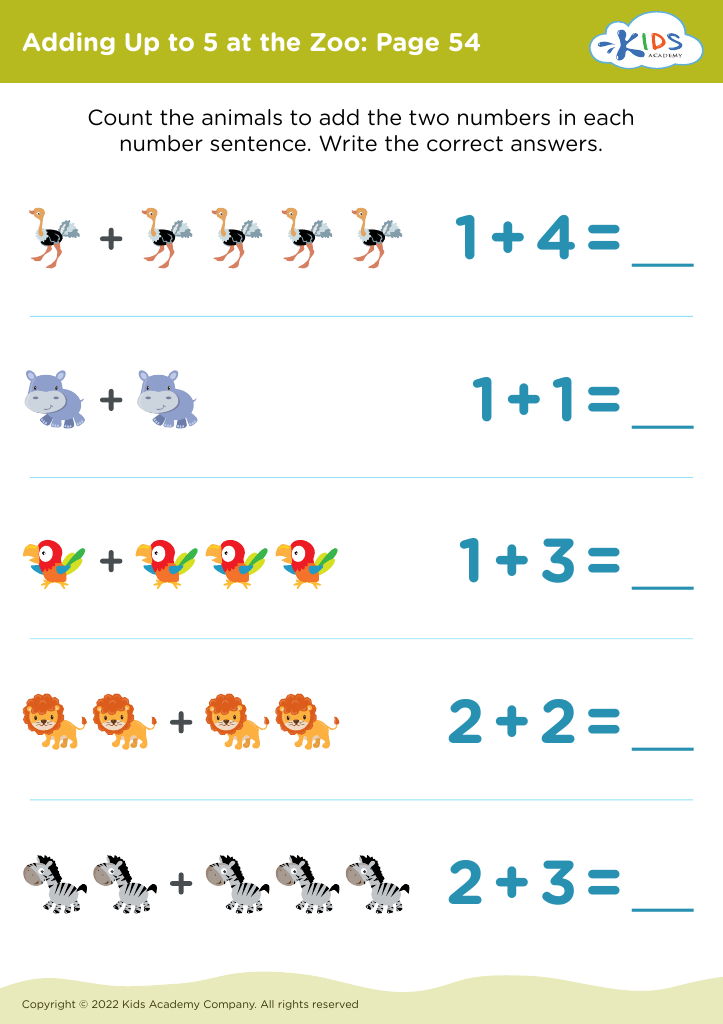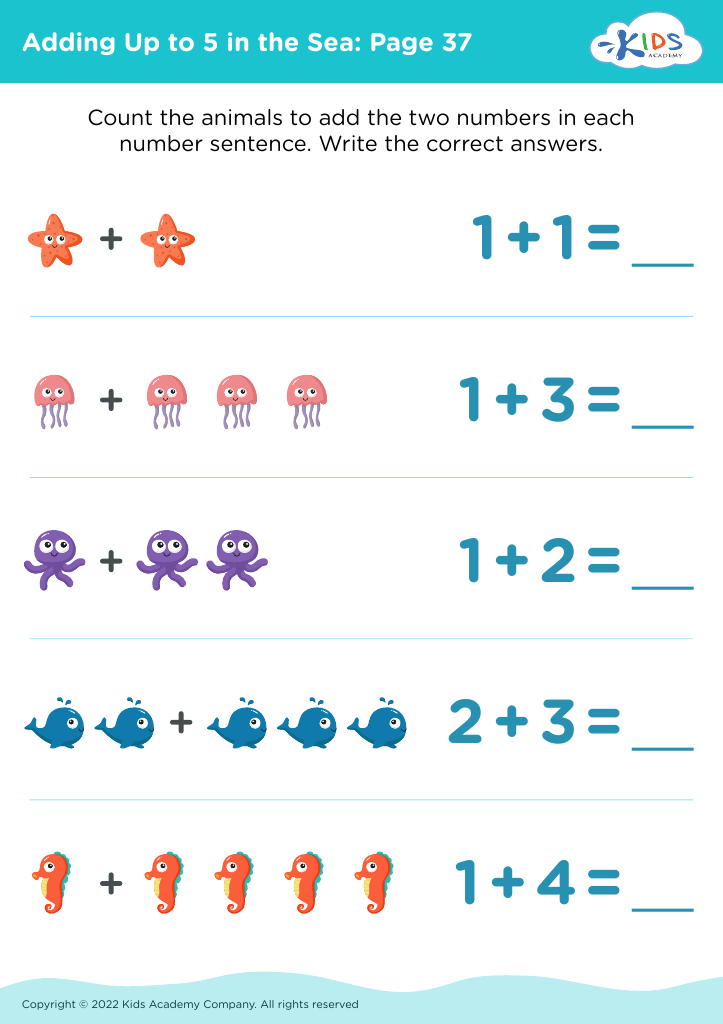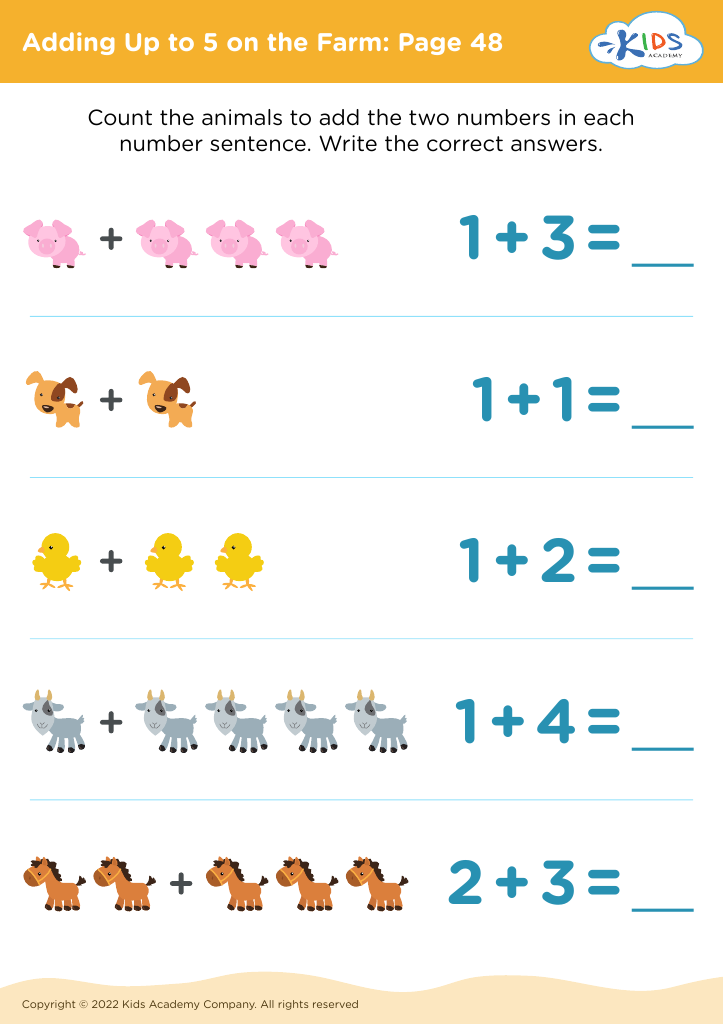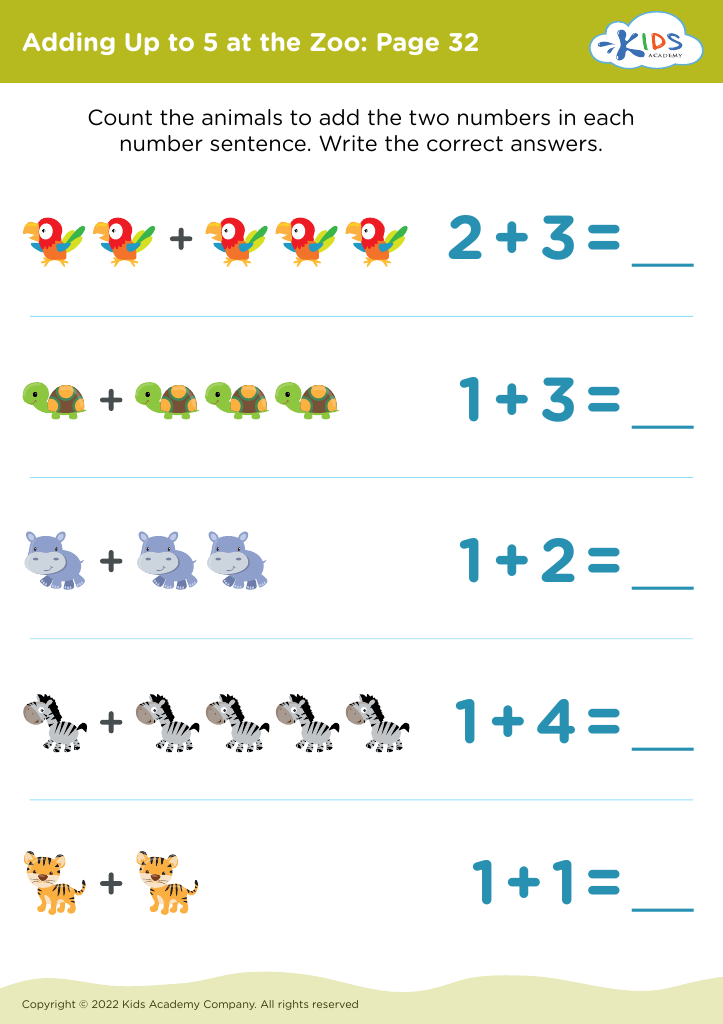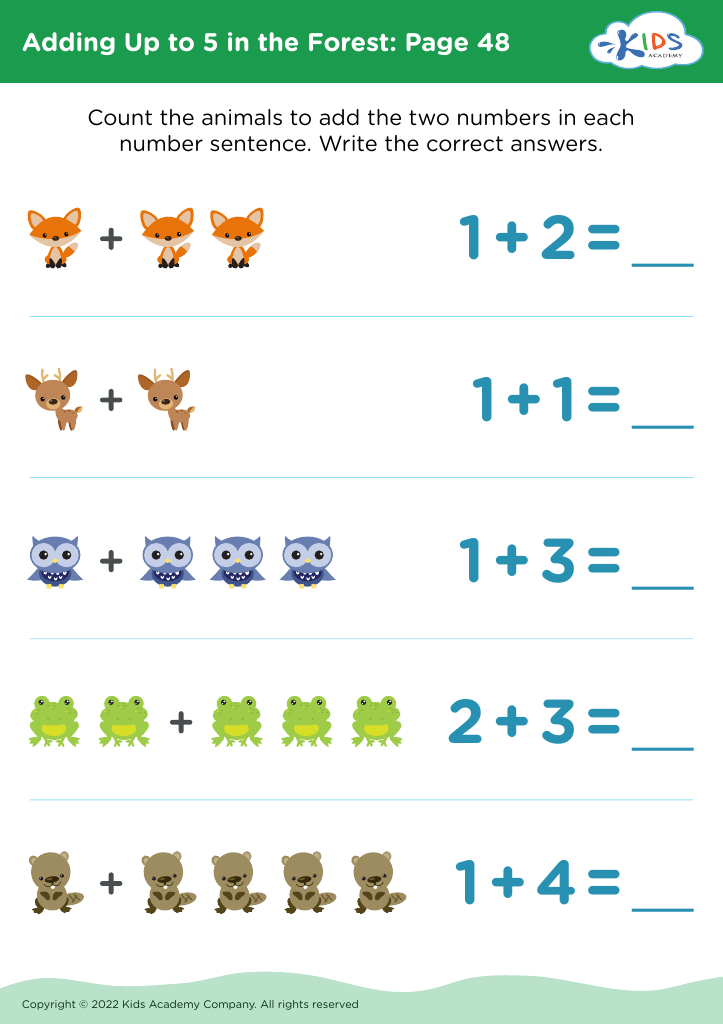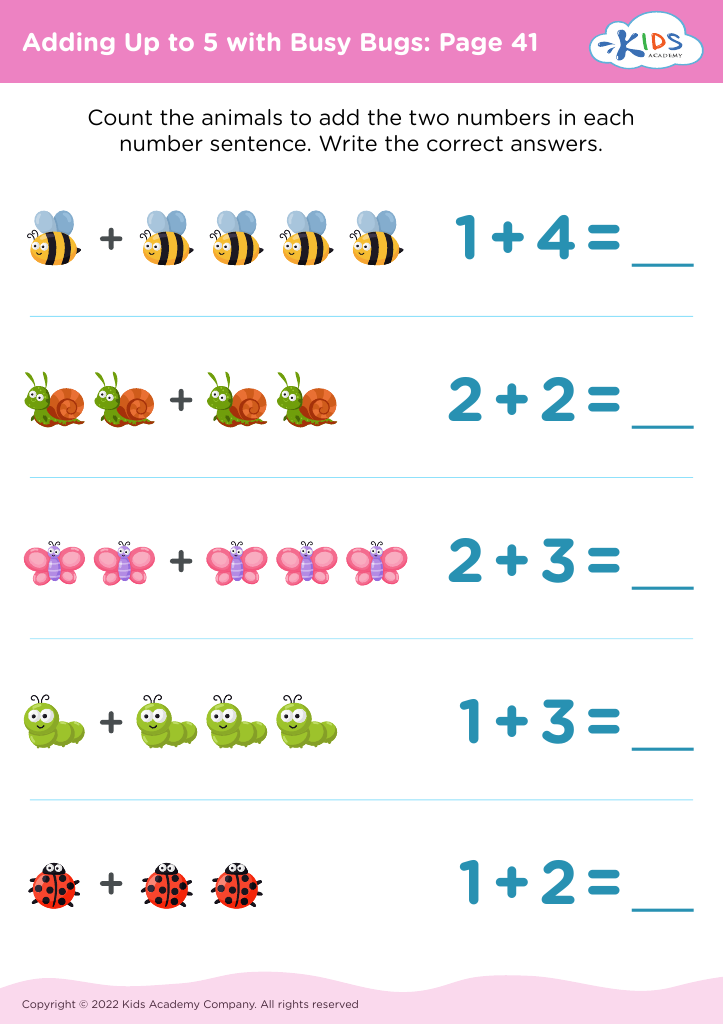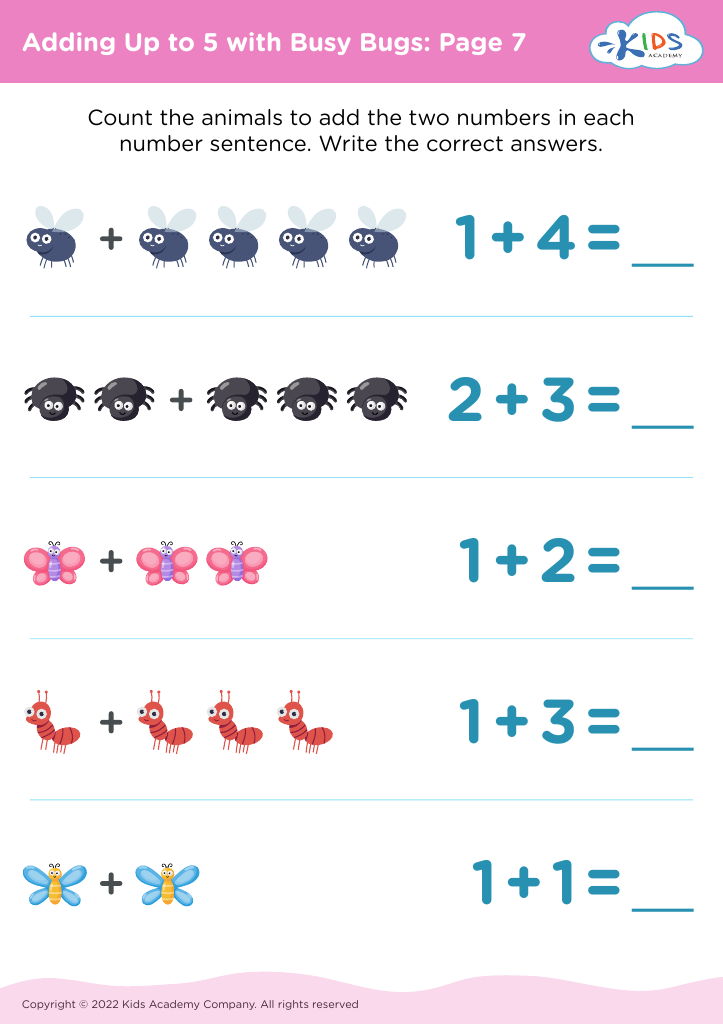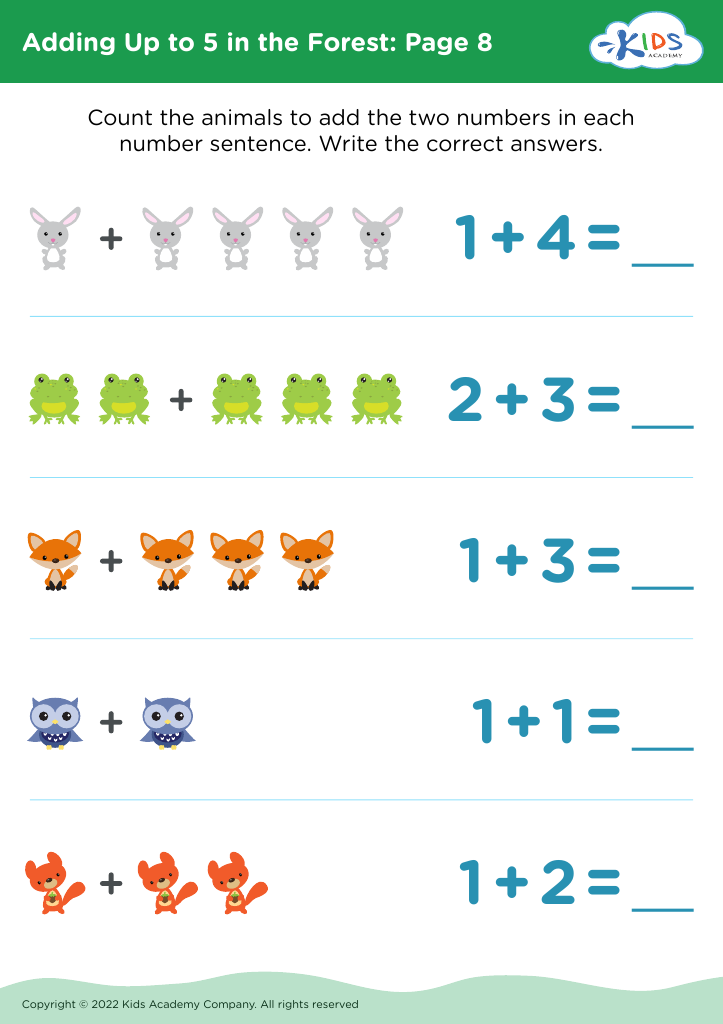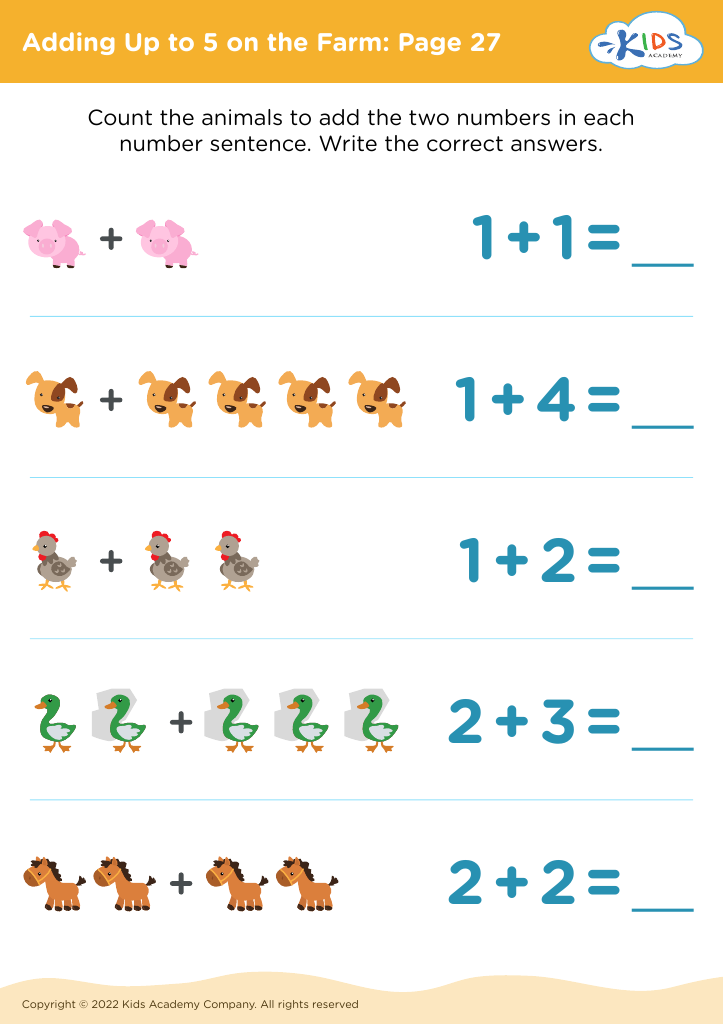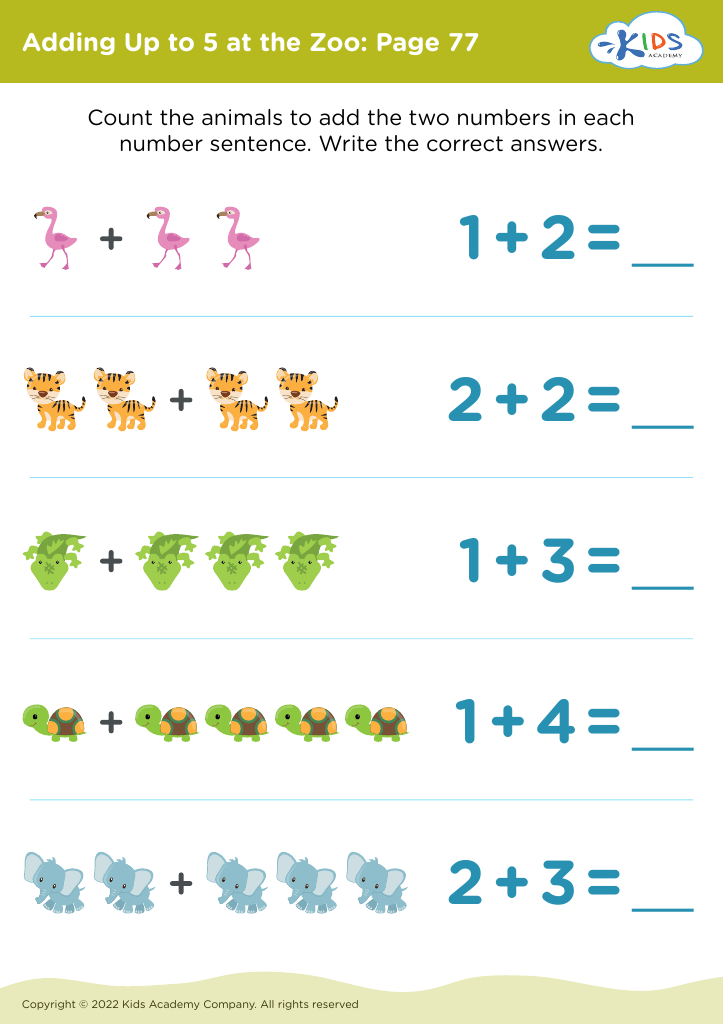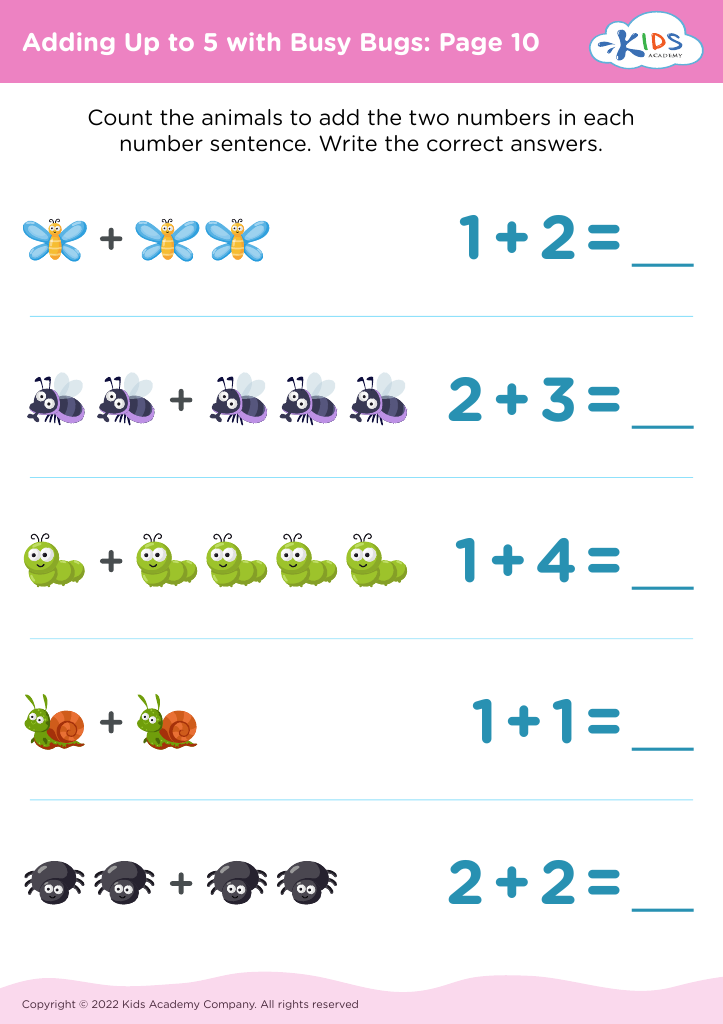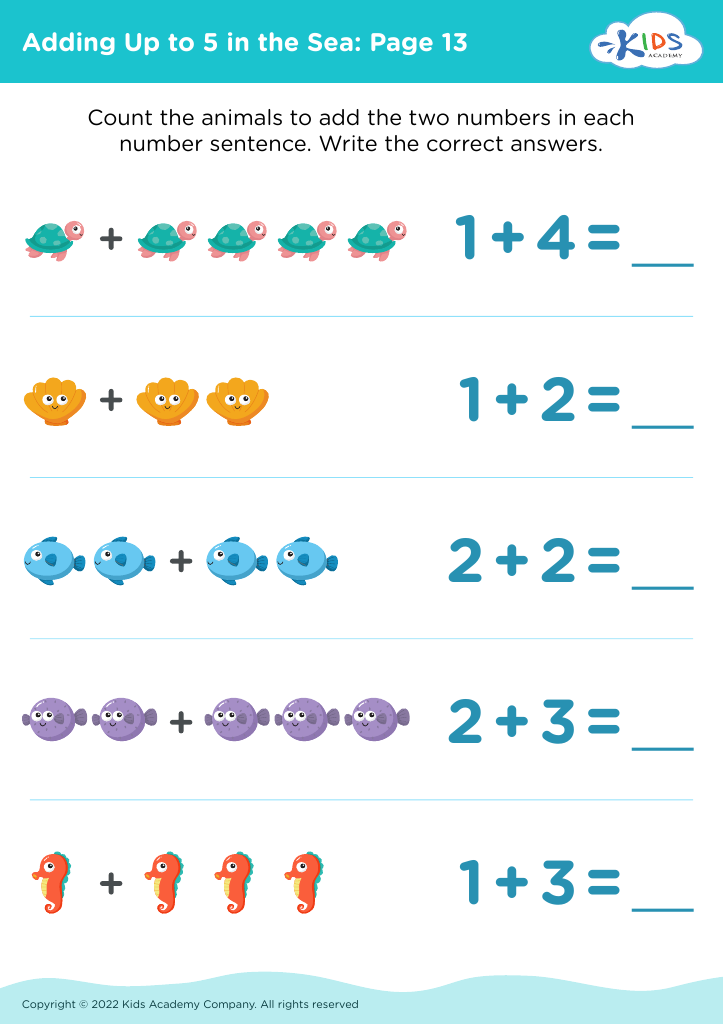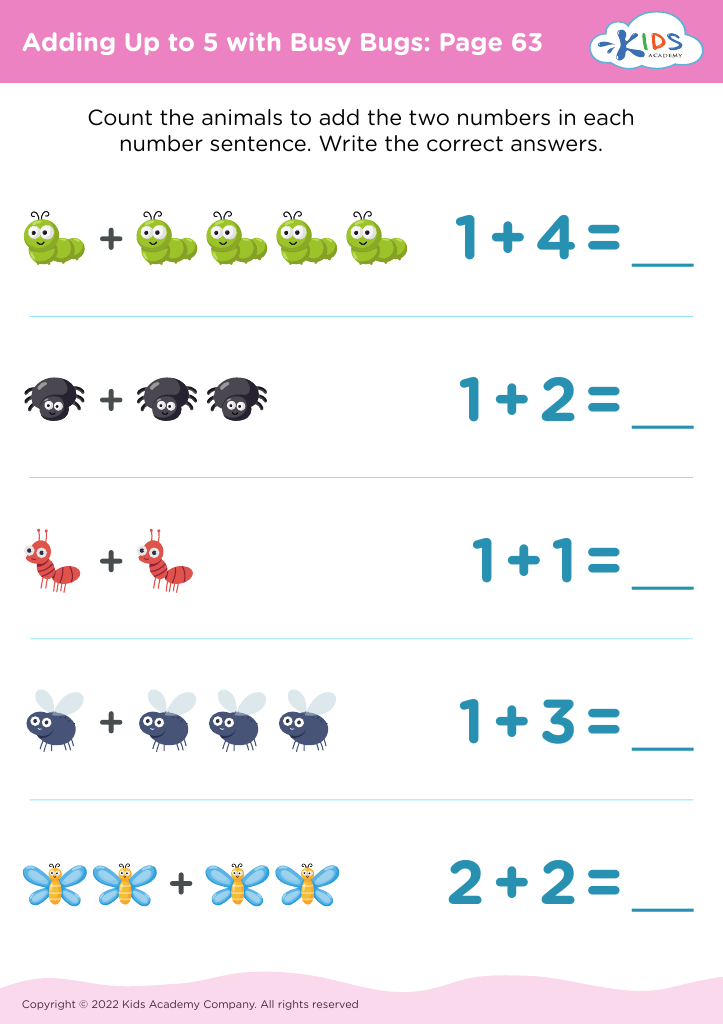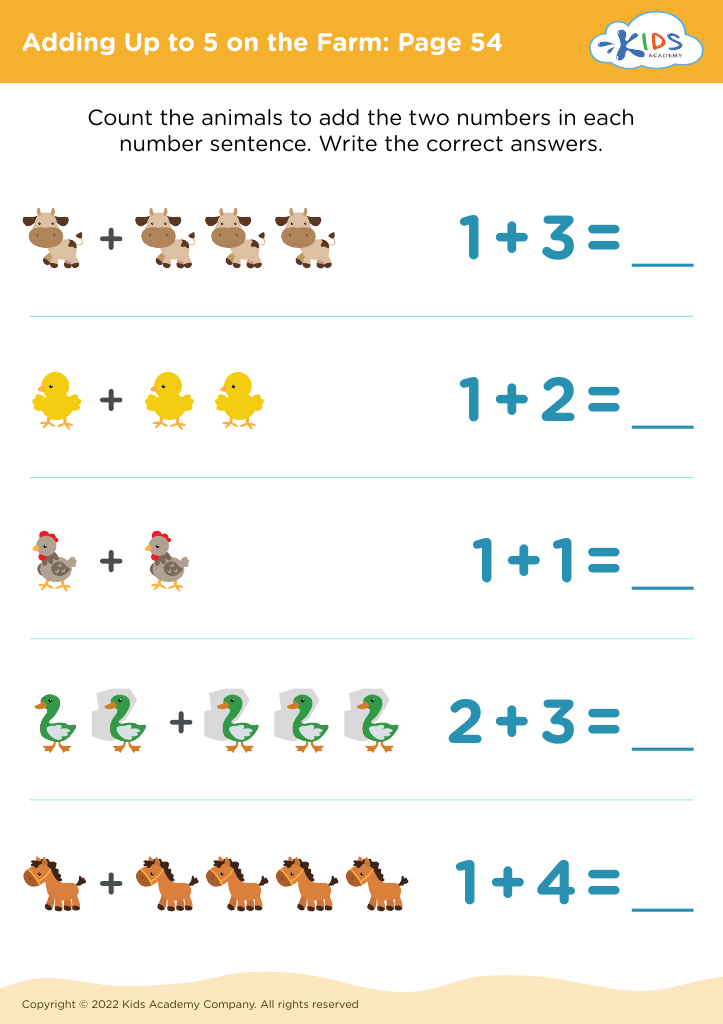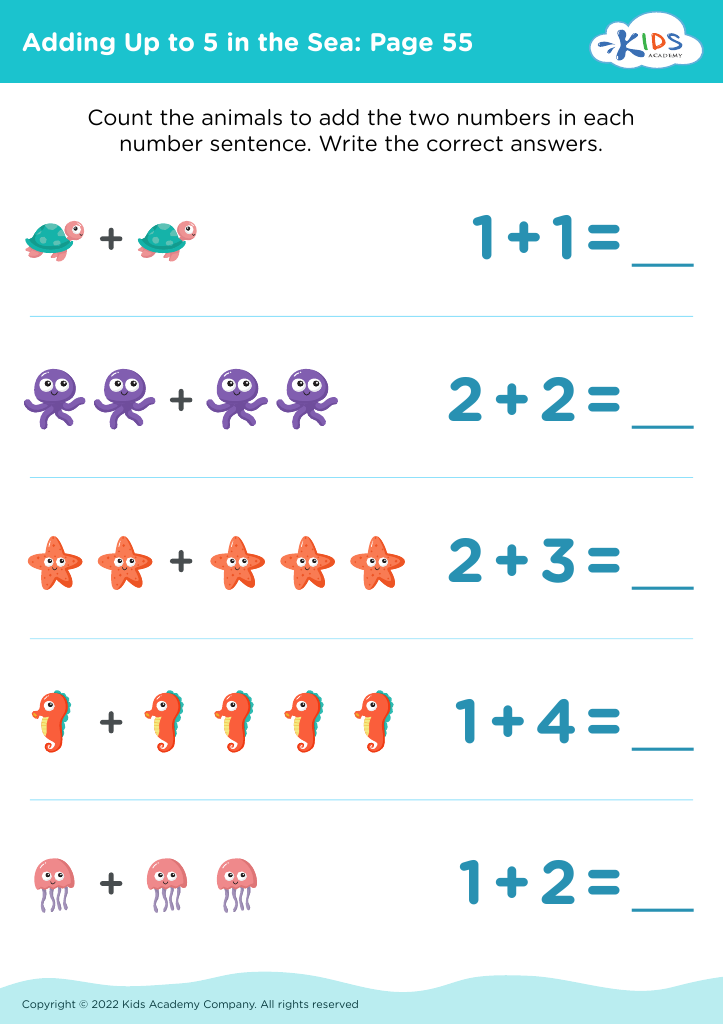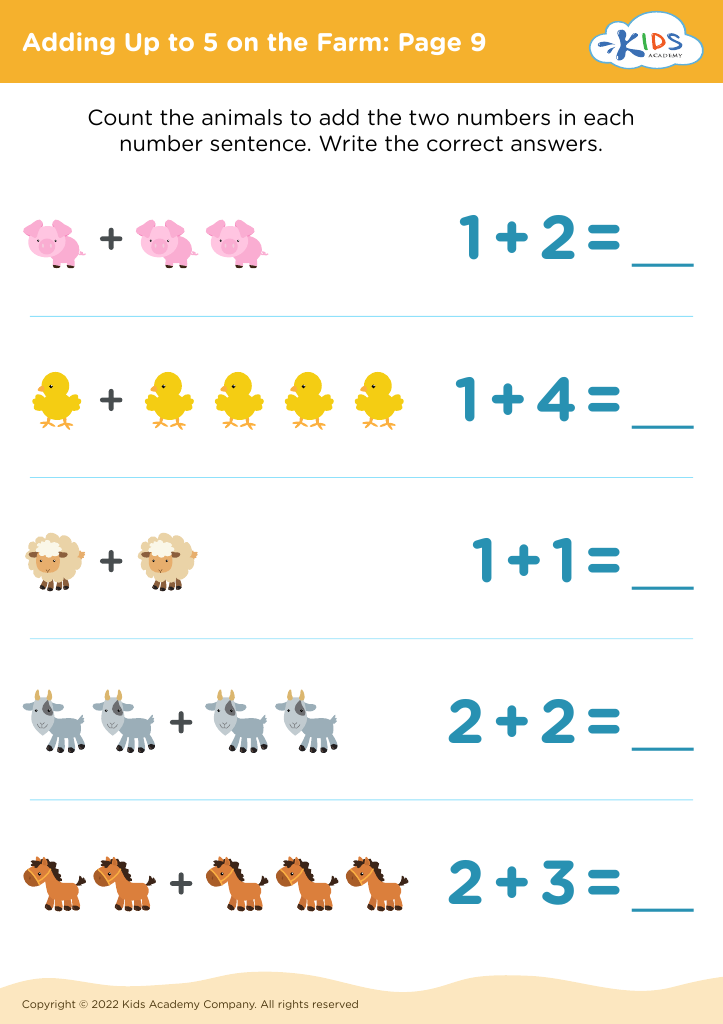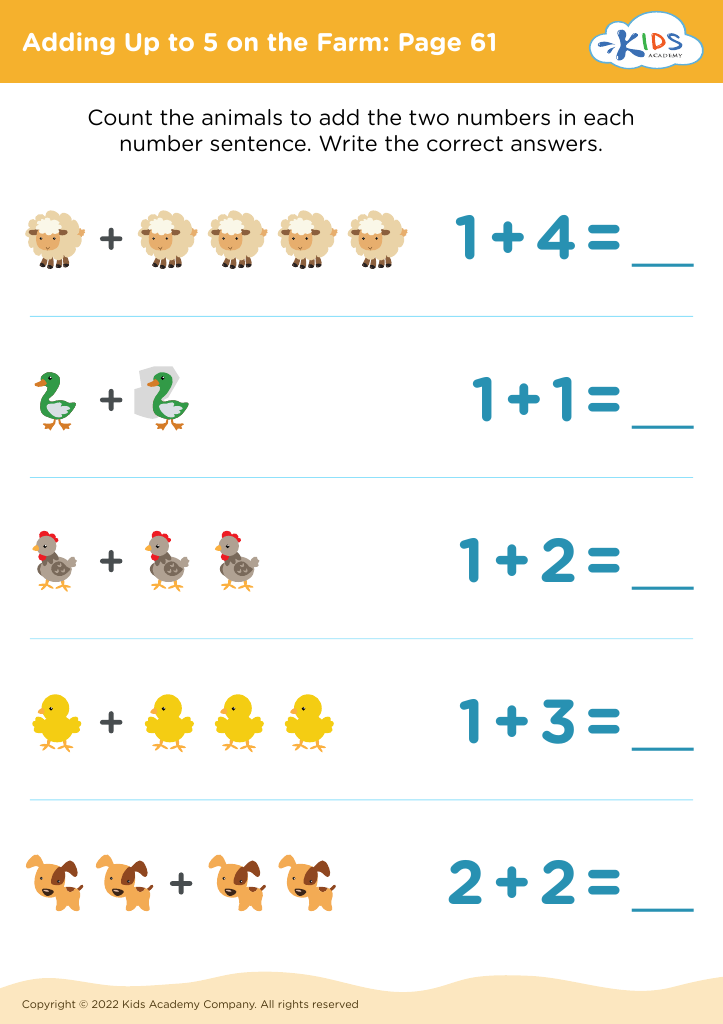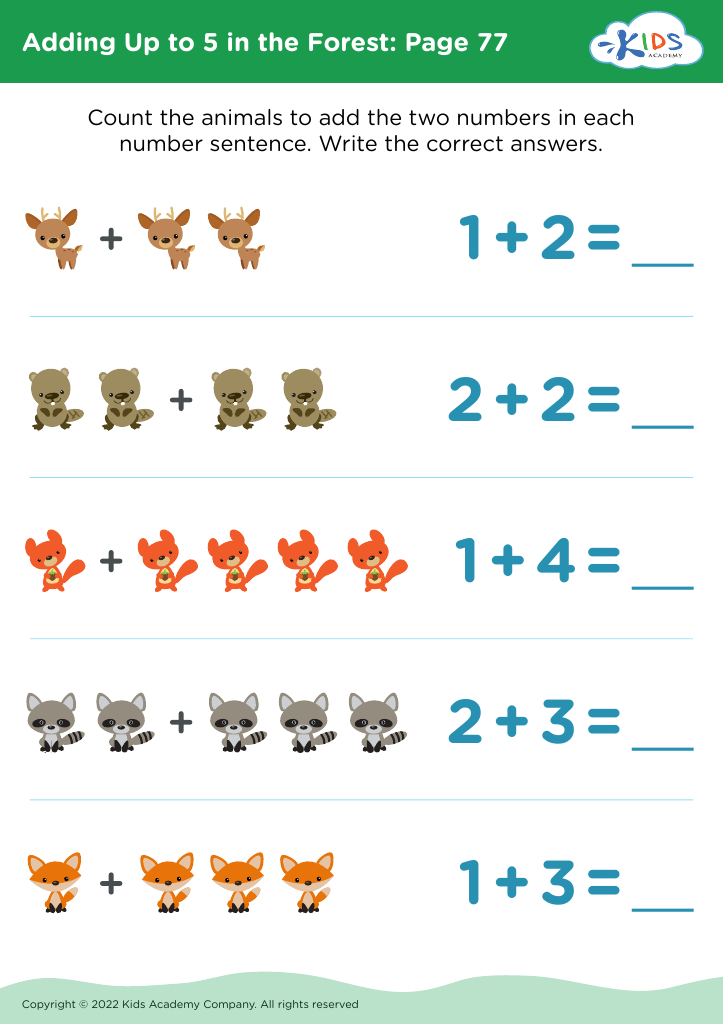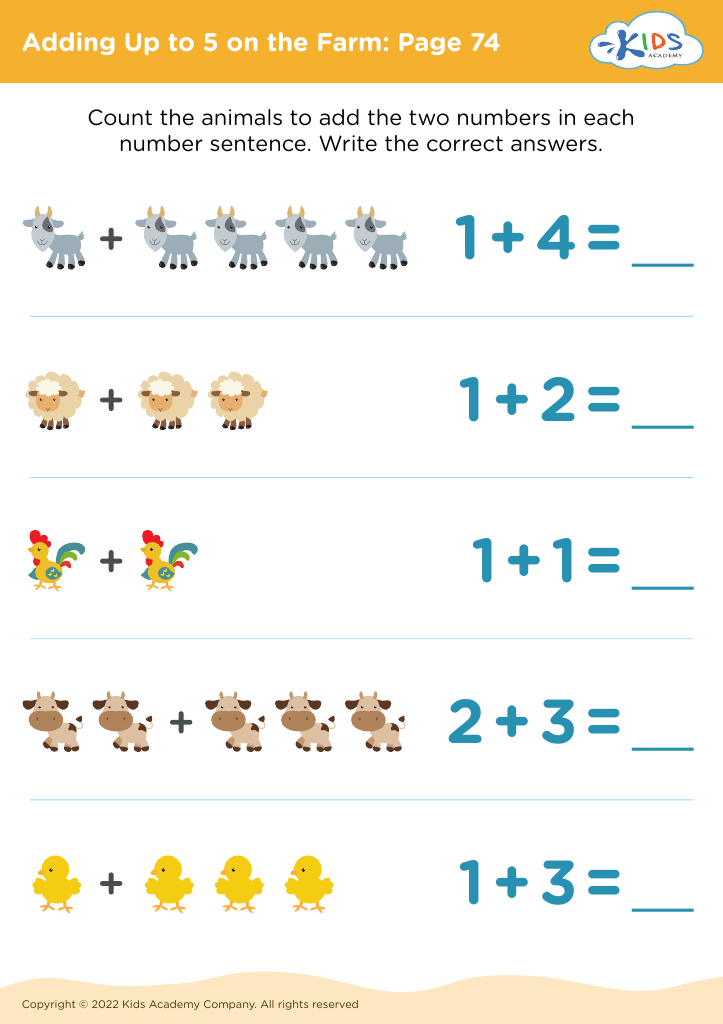Basic Addition Skills Addition & Subtraction Worksheets for Ages 3-7
278 filtered results
-
From - To
Unlock your child's mathematical potential with our engaging Basic Addition & Subtraction Worksheets designed for ages 3-7! These interactive resources help young learners grasp essential math concepts through fun activities tailored to inspire curiosity and confidence. Filled with colorful illustrations and simple equations, our worksheets make learning addition and subtraction exciting and achievable. Whether at home or in the classroom, these activities encourage hands-on practice, promote critical thinking, and develop foundational skills essential for future learning. Perfect for early education, our worksheets empower children to master basic math in an enjoyable way! Explore the world of numbers with Kids Academy today!
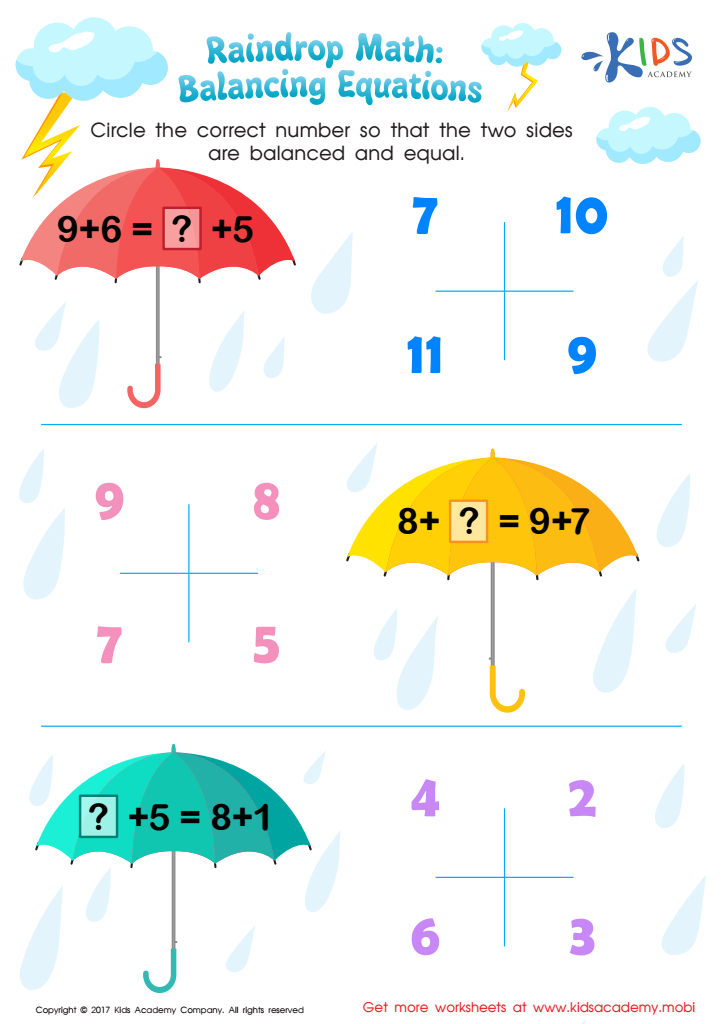

Raindrop Math Printable
Parents and teachers should prioritize basic addition and subtraction skills for children aged 3-7 as these foundational concepts lay the groundwork for a child's overall mathematical understanding and problem-solving abilities. At this developmental stage, children are naturally curious and eager to learn, making it the perfect time to introduce these concepts. Mastery of basic arithmetic fosters not only cognitive skills but also boosts confidence and a positive attitude toward learning.
Addition and subtraction form the basis for more complex math operations later in life, affecting everything from budgeting and financial literacy to analytical reasoning in academics and everyday situations. Engaging children in fun activities, such as games or hands-on manipulatives, makes learning enjoyable and helps reinforce these skills in practical contexts.
Moreover, with fluent addition and subtraction skills, kids become more adept at recognizing patterns, enhancing their critical thinking abilities. Emotionally, as they succeed in mastering these skills, their self-esteem builds, promoting resilience and a lifelong love for learning.
In short, equipping young learners with these essential math skills not only benefits their academic journey but also prepares them to navigate an increasingly complex world. Taking a proactive approach ensures they are well-prepared for future educational challenges.
 Assign to My Students
Assign to My Students

